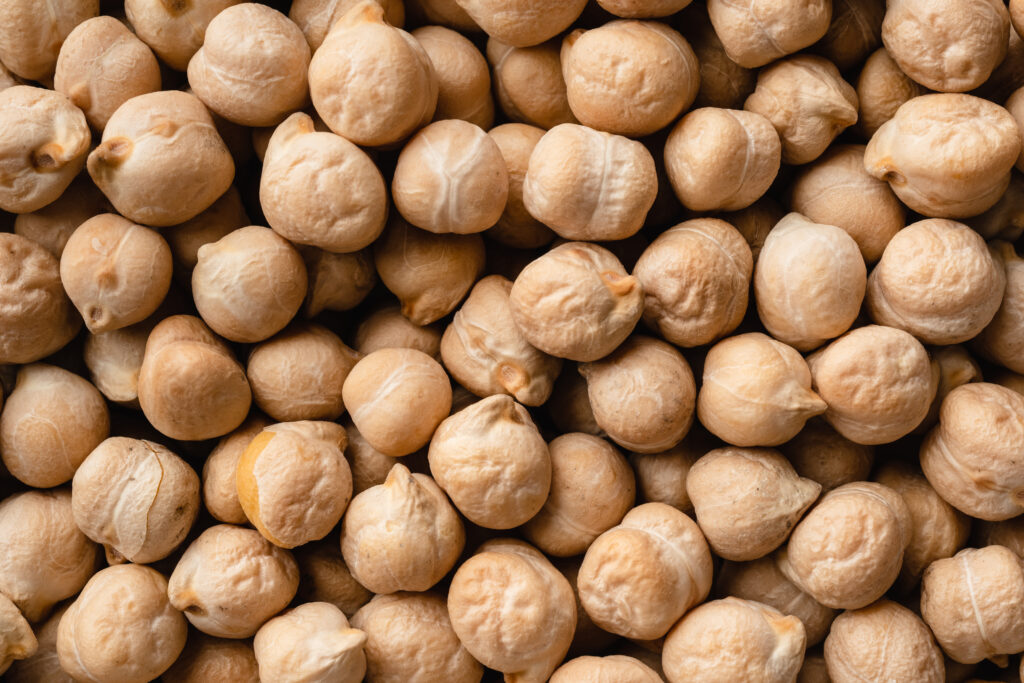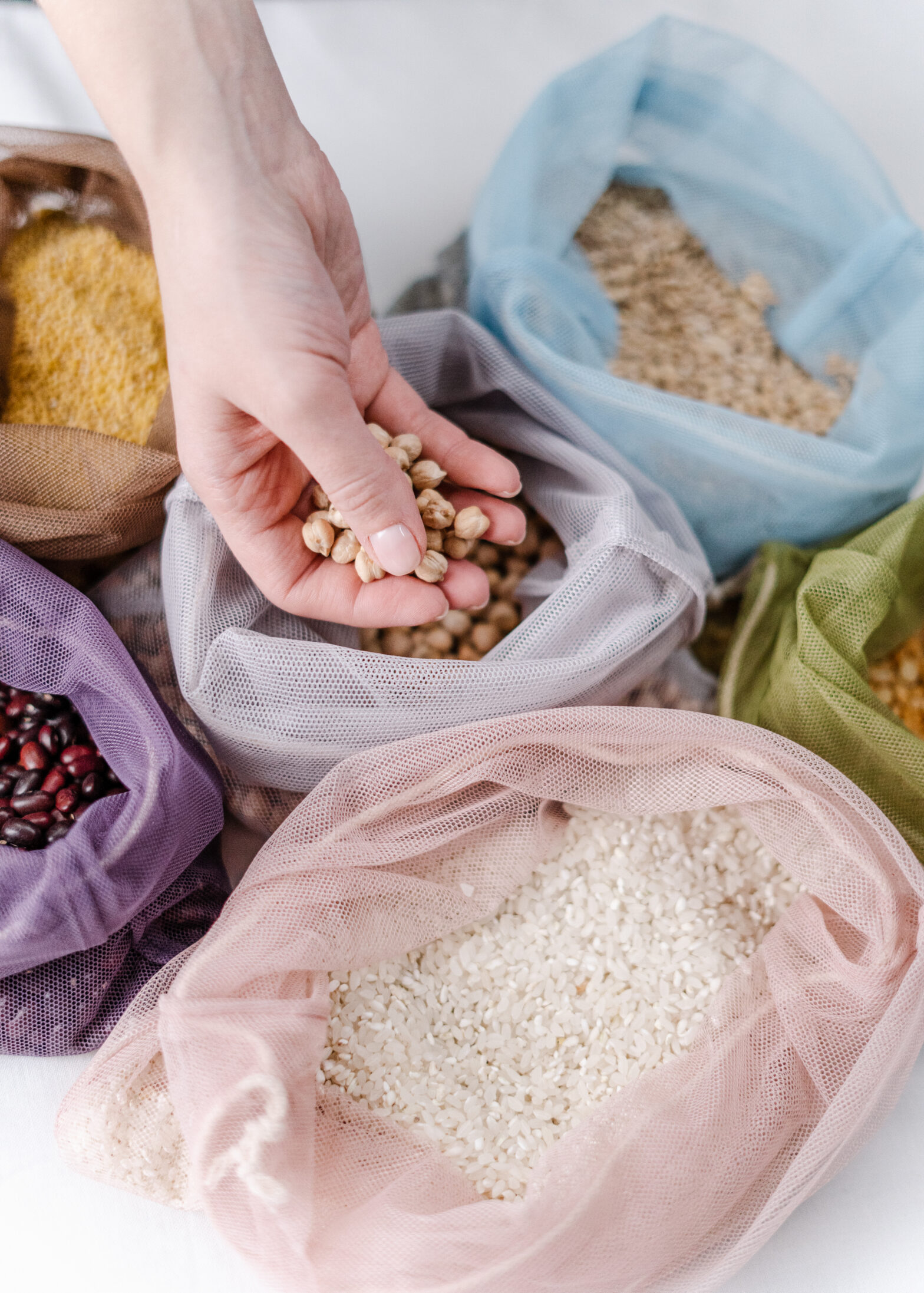Chickpeas, also known as garbanzo beans, offer numerous benefits when added to one’s diet. As a member of the pulse family, these legumes are packed with fiber, protein, and healthy fats while boasting a low glycemic index. By incorporating chickpeas into meals and snacks, individuals can potentially manage blood sugar levels, support heart health, and maintain a healthy body weight. Furthermore, chickpeas may promote gut health and possess antioxidant properties. Gluten-free and devoid of common allergens, these versatile legumes present a viable option for a nutrient-dense diet enriched with vitamins, minerals, and antioxidants. However, it is important to note that while consuming chickpeas may provide these benefits, individuals must be mindful of the common side effects of gas and bloating that may arise.

Introduction
Chickpeas, also known as garbanzo beans, are a member of the pulse family. These small, round legumes have been consumed for thousands of years and are a staple in many cuisines around the world. In addition to their versatility in cooking, chickpeas offer a wide array of health benefits. From managing blood sugar to supporting heart health, maintaining a healthy body weight, promoting gut health, and providing antioxidant properties, chickpeas are a nutritious addition to any diet. Despite their numerous benefits, it’s important to note that consuming chickpeas can cause gas and bloating in some individuals. Nevertheless, the overall nutrient density of chickpeas, combined with their low allergenicity and gluten-free nature, make them an excellent choice for those looking to improve their overall health and well-being.
Health Benefits of Chickpeas
High in Fiber
Chickpeas are an excellent source of dietary fiber, with both soluble and insoluble fibers present in significant amounts. One cup of cooked chickpeas contains about 12.5 grams of fiber, which is approximately half of the recommended daily intake for adults. This high fiber content offers several health benefits, including improved digestion, enhanced bowel regularity, and reduced risk of developing chronic diseases such as cardiovascular disease and type 2 diabetes.
Good Source of Protein
In addition to their fiber content, chickpeas are also a good source of plant-based protein. They contain all nine essential amino acids, making them a valuable protein source for vegetarians and vegans. One cup of cooked chickpeas provides approximately 15 grams of protein, which is equivalent to the protein content of two to three ounces of meat. Protein is essential for building and repairing tissues, supporting muscle growth, and maintaining overall health and vitality.
Provide Healthy Fats
Chickpeas are relatively low in fat, but the fats they do contain are of the healthy variety. Most of the fat in chickpeas comes from polyunsaturated and monounsaturated fats, which are known to promote heart health and reduce the risk of chronic diseases. These fats help regulate cholesterol levels, reduce inflammation, and support brain function. Incorporating chickpeas into a balanced diet can contribute to a healthy fat intake, which is particularly important for individuals following a plant-based or vegetarian diet.
Low Glycemic Index
One of the key health benefits of chickpeas is their low glycemic index (GI). The GI is a measure of how quickly a food raises blood sugar levels. Foods with a high GI can cause rapid spikes in blood sugar, which can be detrimental to health, especially for individuals with diabetes or those at risk of developing it. Chickpeas have a low GI, meaning they are digested and absorbed more slowly, resulting in a steadier release of glucose into the bloodstream. This helps regulate blood sugar levels, prevent sugar crashes, and promote overall metabolic health.

Managing Blood Sugar
Regulating Insulin Levels
Chickpeas contain a type of fiber called soluble fiber, which has been shown to help regulate insulin levels. Soluble fiber forms a gel-like substance in the digestive tract, which slows down the absorption of carbohydrates and glucose into the bloodstream. This can help improve insulin sensitivity and reduce the risk of insulin resistance, a condition that can lead to the development of type 2 diabetes.
Preventing Blood Sugar Spikes
The low glycemic index of chickpeas also plays a role in managing blood sugar levels. By slowing down the release of glucose into the bloodstream, chickpeas prevent rapid spikes in blood sugar that can occur after eating high-GI foods. This is beneficial for individuals with diabetes, as well as those trying to maintain stable energy levels and avoid sugar crashes throughout the day. Adding chickpeas to meals can help create balanced and sustainable blood sugar levels.
Supporting Heart Health
Reducing Bad Cholesterol
Chickpeas have been shown to have a positive impact on heart health by reducing levels of LDL cholesterol, also known as “bad” cholesterol. The soluble fiber found in chickpeas binds to cholesterol in the digestive tract, preventing its absorption into the bloodstream. By lowering LDL cholesterol levels, chickpeas help reduce the risk of cardiovascular diseases, such as heart attacks and strokes.
Lowering Blood Pressure
High blood pressure, or hypertension, is a major risk factor for heart disease. The potassium content of chickpeas makes them beneficial for individuals looking to lower their blood pressure. Potassium is an essential mineral that helps regulate fluid balance in the body and promote healthy blood pressure levels. By incorporating chickpeas into a balanced diet, individuals can contribute to maintaining optimal blood pressure and supporting heart health.
Improving Heart Function
Chickpeas are rich in folate, a B-vitamin that plays a crucial role in maintaining heart health. Folate helps reduce levels of homocysteine, an amino acid that, when present in high amounts, can damage blood vessels and increase the risk of heart disease. By consuming chickpeas, individuals can ensure an adequate intake of folate and support the overall functioning of their cardiovascular system.

Maintaining a Healthy Body Weight
Promoting Satiety
The high fiber and protein content of chickpeas contribute to their ability to promote feelings of fullness and satiety. When consumed, chickpeas expand in the stomach, signaling to the brain that the body is full. This can help prevent overeating and reduce the overall calorie intake, making chickpeas an excellent addition to weight management and weight loss diets.
Assisting in Weight Management
In addition to their satiating properties, chickpeas can also support weight management through their nutrient density. Despite being relatively low in calories, chickpeas are packed with essential nutrients such as vitamins, minerals, and antioxidants. By including chickpeas in meals and snacks, individuals can ensure they are receiving important nutrients while keeping their calorie intake in check. This is particularly beneficial for those aiming to lose or maintain weight.
Supporting Gut Health
Increasing Healthy Gut Bacteria
Chickpeas contain prebiotic fibers, which serve as food for the beneficial bacteria in the gut. These fibers are not digested by the body but instead promote the growth and activity of probiotics, the friendly bacteria that reside in the intestines. By nourishing the gut microbiota, chickpeas support a healthy balance of bacteria in the digestive system, which is crucial for proper digestion, nutrient absorption, and immune function.
Promoting Digestive Regularity
The fiber content of chickpeas also plays a role in promoting regular bowel movements and preventing constipation. Insoluble fiber adds bulk to the stool, while soluble fiber softens it, making it easier to pass through the digestive system. This combination of fibers helps maintain healthy bowel regularity and can relieve symptoms of constipation. By incorporating chickpeas into their diet, individuals can support digestive health and prevent gastrointestinal issues.
Antioxidant Properties
Neutralizing Free Radicals
Chickpeas are rich in antioxidants, which are compounds that protect the body against free radicals. Free radicals are unstable molecules that can cause damage to cells, leading to inflammation, oxidative stress, and the development of chronic diseases such as cancer and heart disease. The antioxidants found in chickpeas, including vitamins A, C, and E, help neutralize these harmful free radicals and reduce the risk of oxidative damage.
Reducing Oxidative Stress
Oxidative stress occurs when there is an imbalance between the production of free radicals and the body’s ability to neutralize them. This can lead to cellular damage and contribute to the development of chronic diseases. The antioxidant properties of chickpeas help reduce oxidative stress, protect against cellular damage, and promote overall health and longevity.
Gluten-Free and Non-Allergenic
Suitable for Gluten-Free Diets
Chickpeas are naturally gluten-free, making them an excellent option for individuals following a gluten-free diet. Gluten is a protein found in wheat, barley, and rye, and it can cause digestive issues and other health problems for individuals with celiac disease or gluten sensitivity. By incorporating chickpeas into their meals, individuals on a gluten-free diet can enjoy a wide variety of nutritious and delicious options.
Rarely Cause Allergic Reactions
Allergies to legumes are relatively rare, making chickpeas a safe and non-allergenic food for most individuals. However, it’s important to note that some people may still have an intolerance or sensitivity to chickpeas, which can cause digestive discomfort such as gas and bloating. It is advisable to monitor individual reactions and consult with a healthcare professional if any adverse symptoms occur after consuming chickpeas.
Side Effects of Consuming Chickpeas
Gas and Bloating
While chickpeas offer numerous health benefits, they can also cause gas and bloating in some individuals. This is due to the presence of certain carbohydrates in chickpeas that are not well digested by the body. The undigested carbohydrates pass into the large intestine, where they are fermented by bacteria, leading to the production of gas. To minimize the risk of gas and bloating, it is recommended to slowly introduce chickpeas into the diet and to consume them in moderate amounts.
Nutrient-Dense with Essential Nutrients
Vitamins and Minerals
Chickpeas are packed with essential vitamins and minerals that contribute to overall health and well-being. They are particularly rich in folate, manganese, copper, iron, magnesium, and phosphorus. Folate is important for supporting the production of red blood cells and proper fetal development during pregnancy. Manganese and copper are necessary for enzyme activity and energy production, while iron is crucial for delivering oxygen to cells. Magnesium and phosphorus are essential for maintaining proper bone health and supporting various cellular functions.
Antioxidants
In addition to vitamins and minerals, chickpeas also contain a wide range of antioxidants. Antioxidants are substances that protect the body against oxidative stress and cellular damage caused by free radicals. Chickpeas are particularly rich in vitamins A, C, and E, as well as various flavonoids and polyphenols. These antioxidants help neutralize harmful free radicals and reduce the risk of chronic diseases such as cancer, heart disease, and neurodegenerative disorders.
In conclusion, chickpeas are a highly nutritious and versatile legume that offers numerous health benefits. From their high fiber and protein content to their ability to manage blood sugar levels, support heart health, maintain a healthy body weight, promote gut health, and provide antioxidant properties, chickpeas are an excellent addition to any diet. While they can cause gas and bloating in some individuals, the overall nutrient density and low allergenicity of chickpeas make them a safe and beneficial food for most people. By incorporating chickpeas into meals and snacks, individuals can enhance their overall health and well-being while enjoying a variety of delicious and nutritious dishes.
